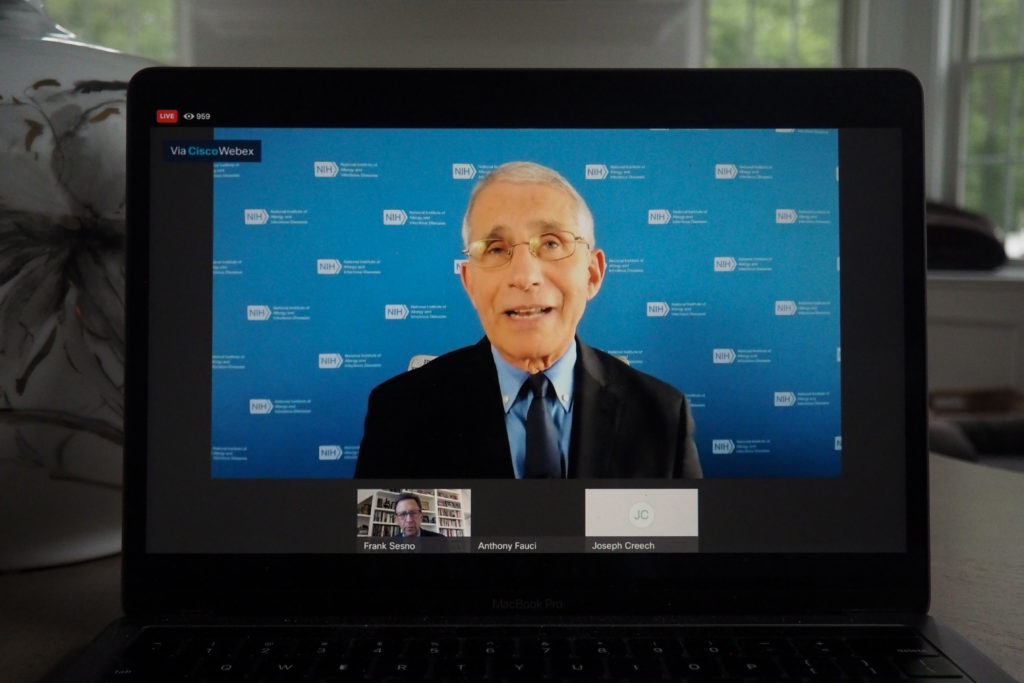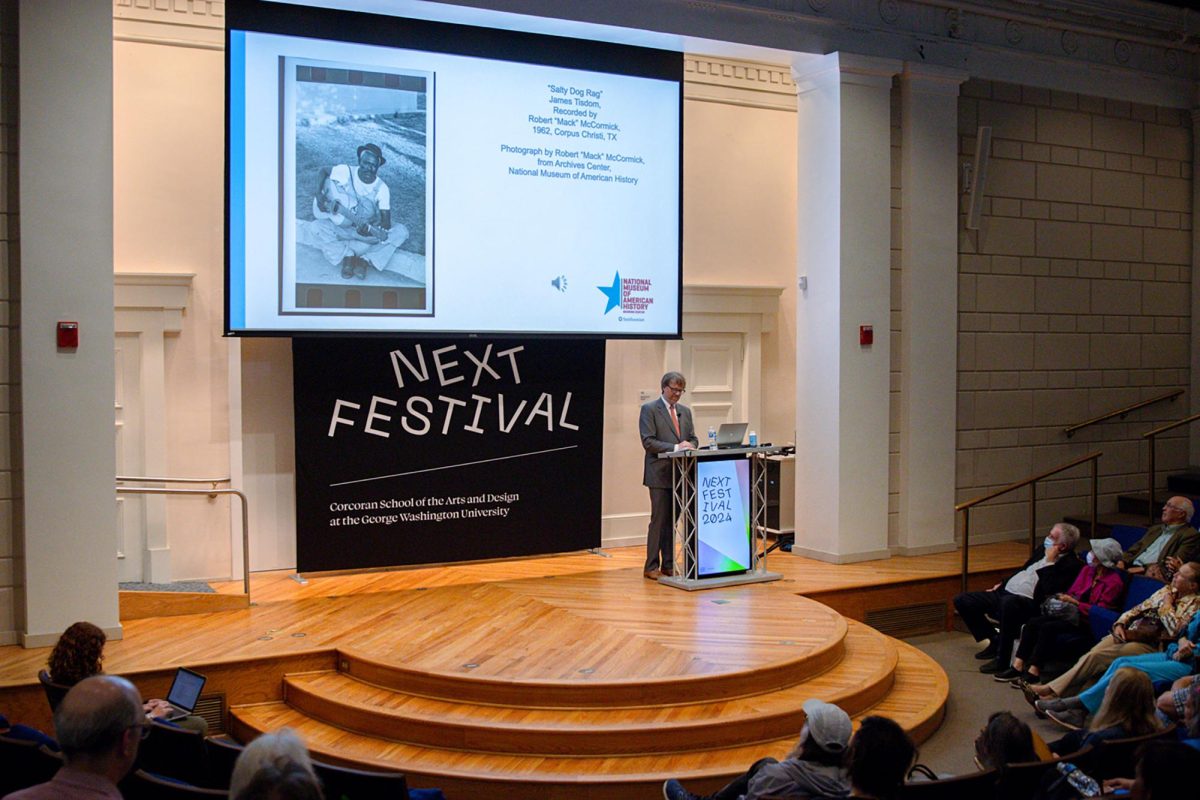National Institute of Allergy and Infectious Diseases Director Anthony Fauci discussed the state of the COVID-19 pandemic and steps needed to return to normalcy during a Facebook Live event Wednesday.
The event, hosted by former SMPA Director Frank Sesno, was sponsored by the Milken Institute School of Public Health and the School of Media and Public Affairs. Sesno talked with Fauci about schools’ decisions to reopen during the pandemic and the ongoing search for a COVID-19 vaccine, fielding additional questions from students and faculty.
Here are some of the highlights from the conversation between Fauci and Sesno.
Providing safe education
Fauci said universities could safely open if they have the capability to test everyone prior to campus entry, test intermittently, quickly identify cases, isolate individuals and trace contacts. He pointed to schools like the universities of Notre Dame and North Carolina at Chapel Hill, which brought its students back to campus until coronavirus outbreaks forced them to move classes online again.
“If you can do that, then you very well may be able to open up the college and the university,” Fauci said. “If you can’t, it will be more problematic.”
Fauci added that school districts should decide whether to reopen by the number of cases in a town or city.
“We live in a big country that is very heterogeneous with regard to the level of virus, and you’ve got to look at what’s going on in the community,” Fauci said.
Although children are less likely to have a severe reaction to the virus than adults, children have a strong ability to carry and spread the virus to others, Fauci said.
Vaccine development and testing
Fauci said he is “cautiously optimistic” about several potential vaccines currently in Phase III of production – when the trial vaccine is distributed to thousands of individuals for testing. He said the final tests will likely continue for several months to determine whether the trial vaccines are “safe and effective.”
Fauci said he is unsure if Russia’s unveiled vaccine, which has not entered the third testing phase, is effective in safely curbing the spread of COVID-19. He said there is a difference between developing a vaccine and proving it’s safe for distribution.
“The Russians, in my knowledge, and I’m pretty sure I’m correct, have not been studying this intensively in very large randomized placebo-controlled trials,” Fauci said, adding that developing a vaccine and proving it
Vaccine distribution
Vaccine manufacturers currently believe there will be enough vaccines for the entire U.S. population by the end of 2021, Fauci said. He said certain groups, like health care workers and elderly populations, will be prioritized before others to receive the vaccine.
Sesno asked Fauci how much focus will be provided to minority and low-income communities when distributing the vaccine.
“We have an entire group of people who are committed to making sure that that happens,” Fauci said.
Independent groups will advise the Centers for Disease Control and Prevention on who gets a priority vaccine, Fauci said. He added that “very serious attention” is being given to equitable distribution.
Fauci said he does not support a nationwide mandate for a COVID-19 vaccine.
“It would be unenforceable and not appropriate,” Fauci said.
Fauci added that public health officials should engage with people who are hesitant to receive the vaccine to ensure they understand it’s safe and effective.
“You get out there and you get community representatives to engage them to try and be as transparent as you possibly can with the data,” he said.








